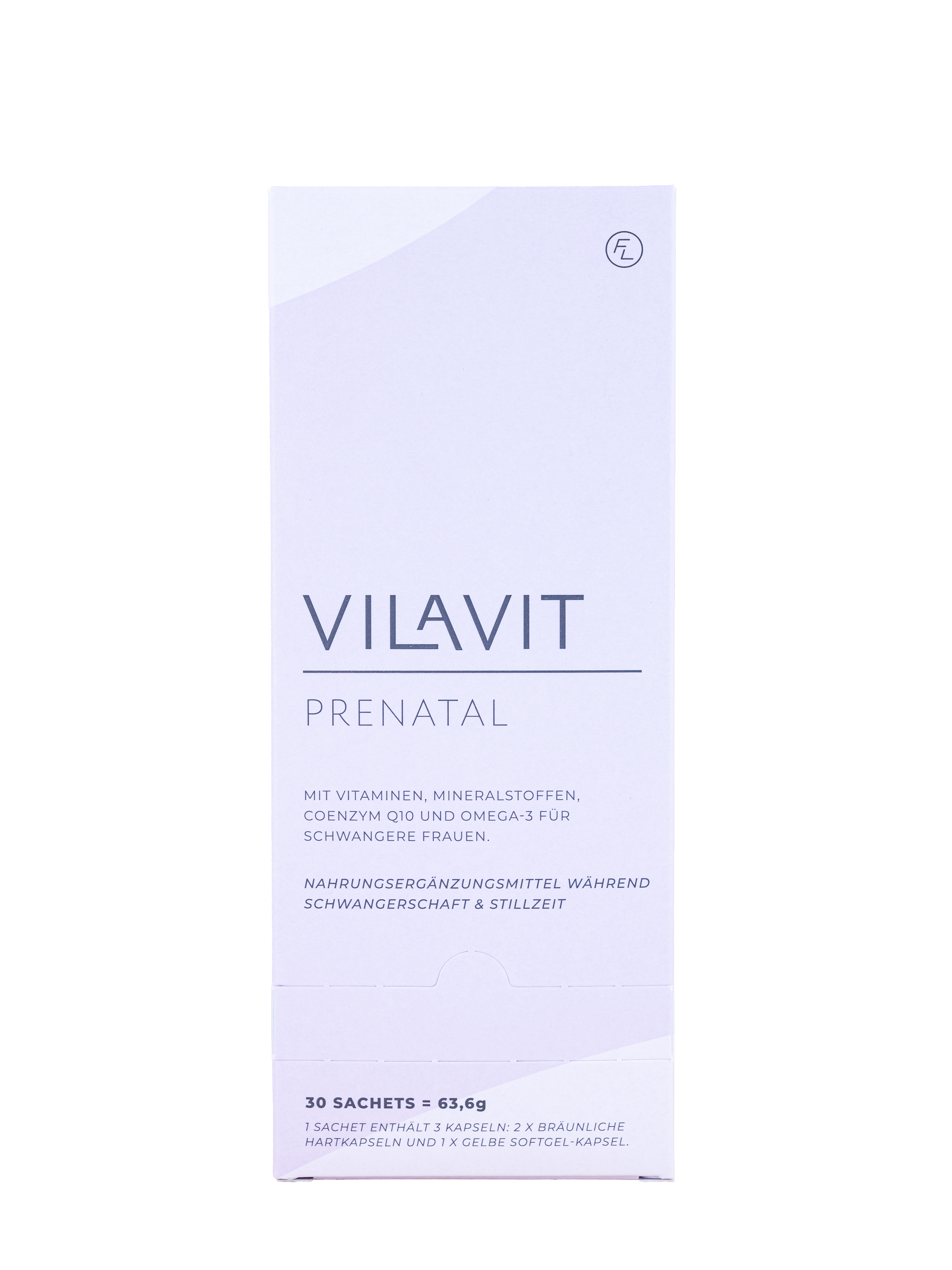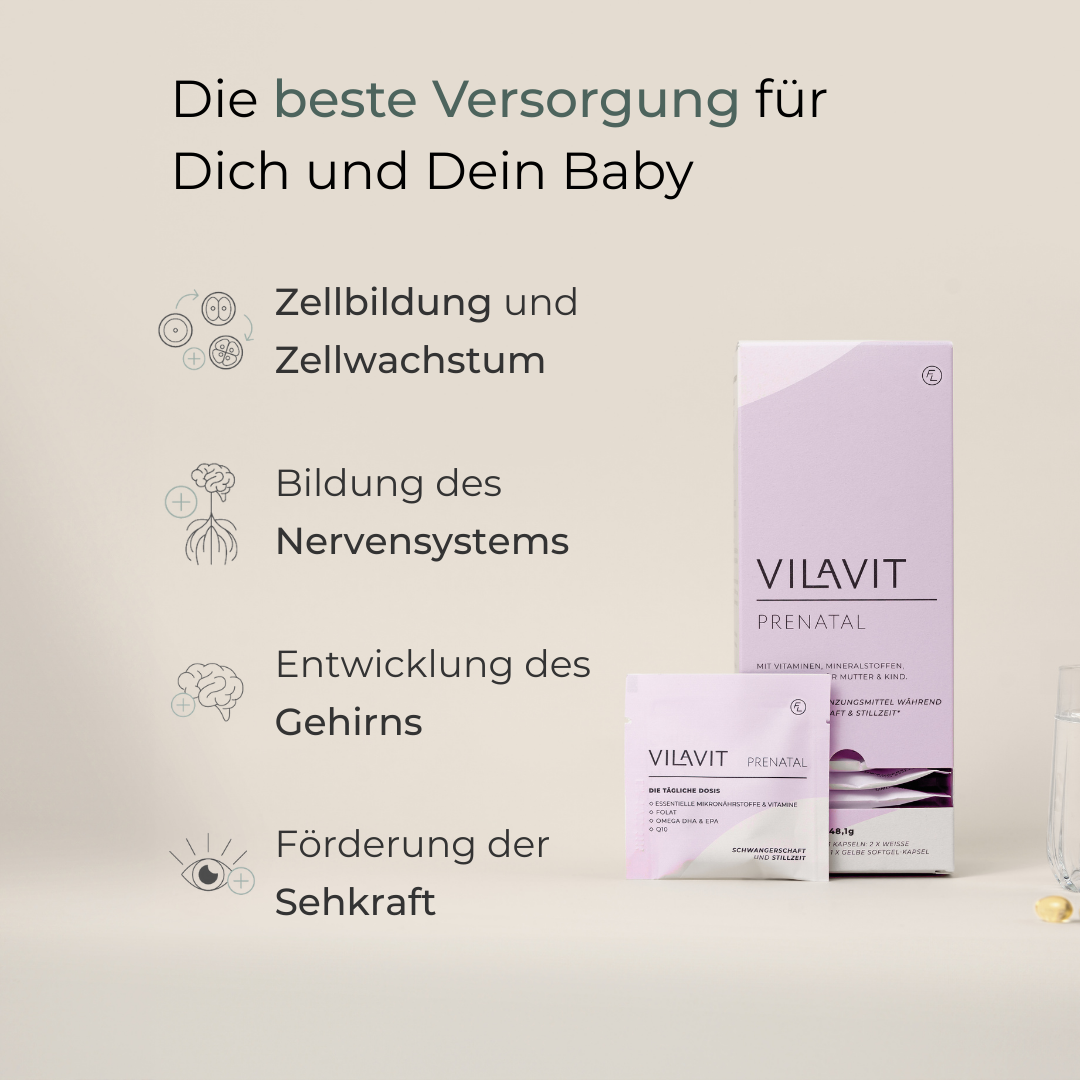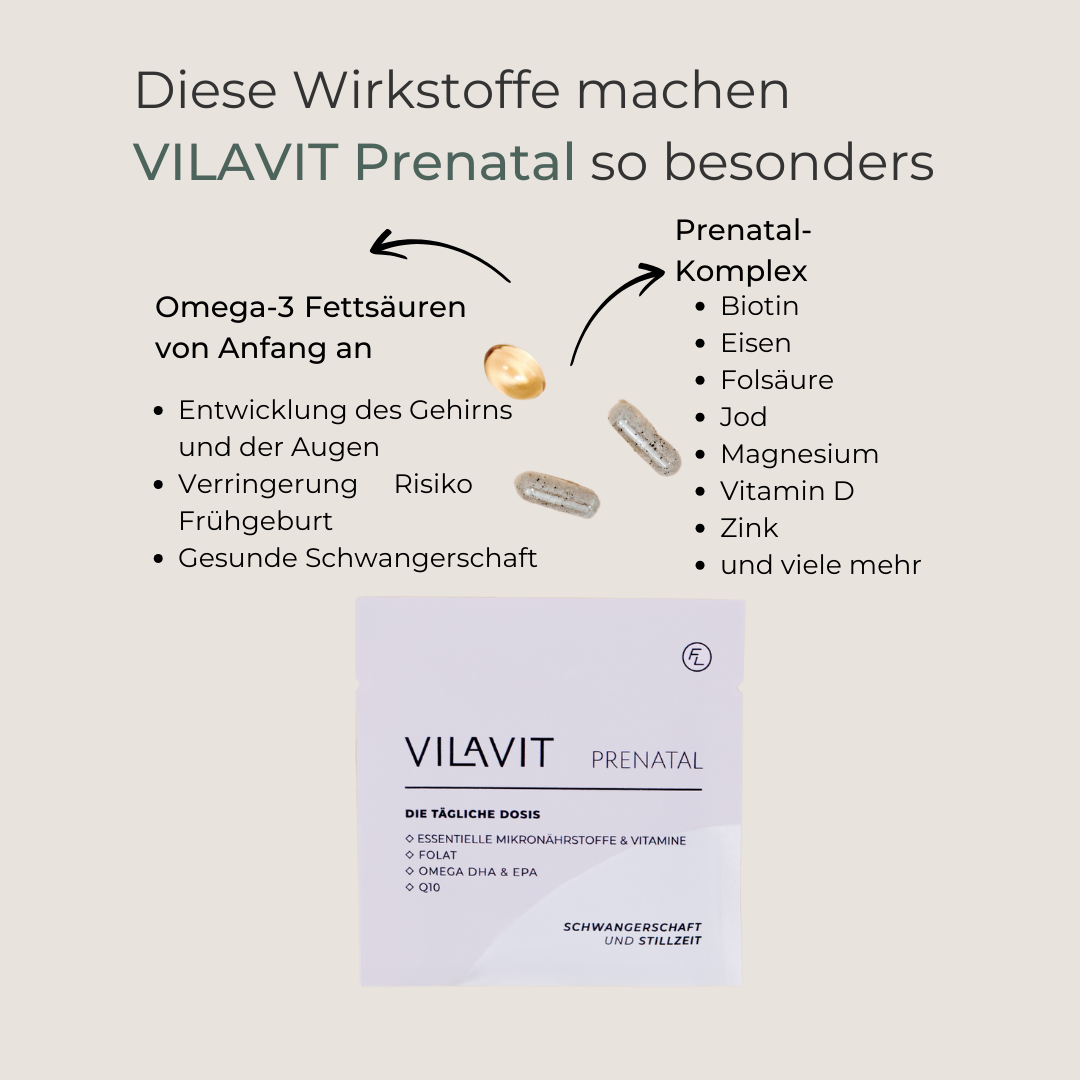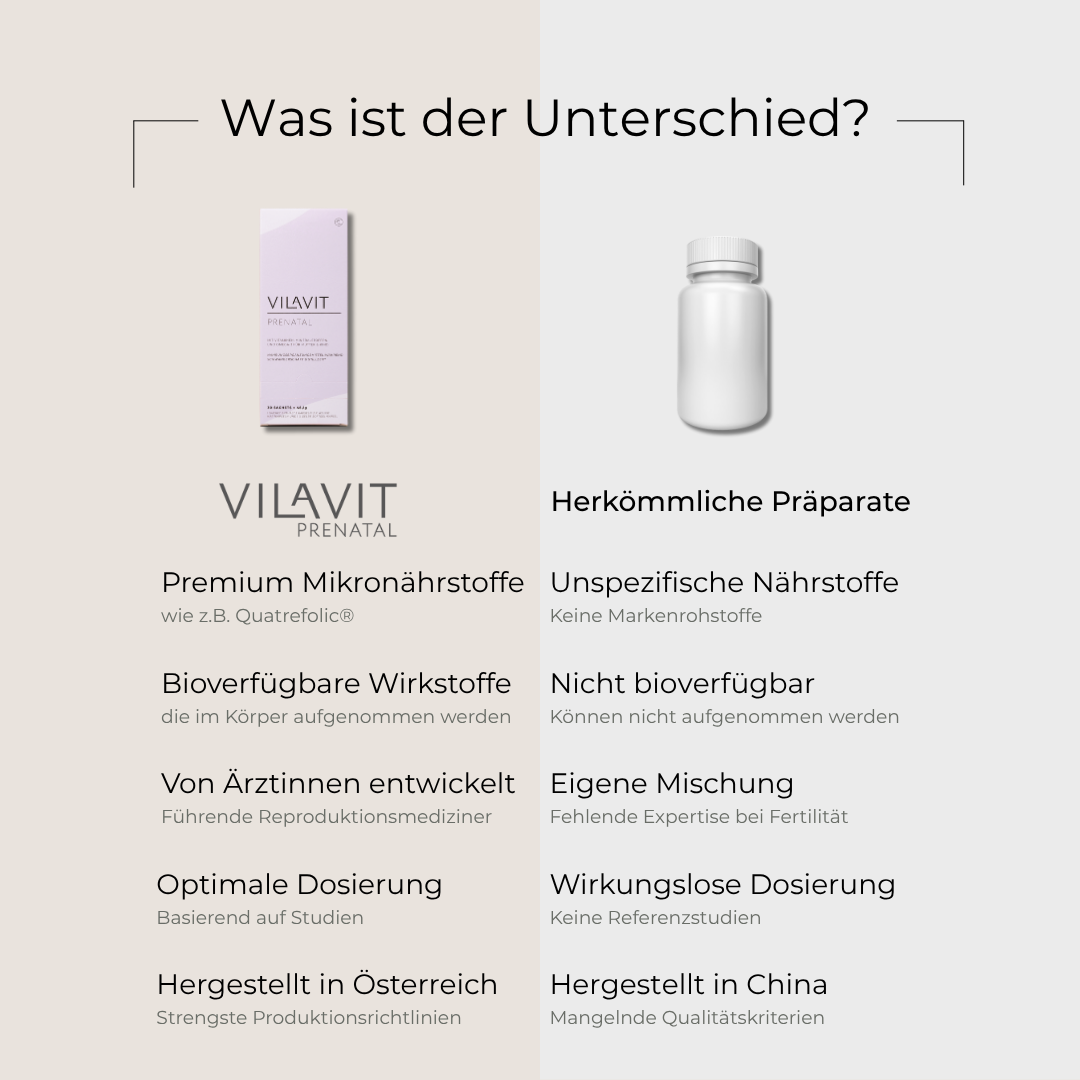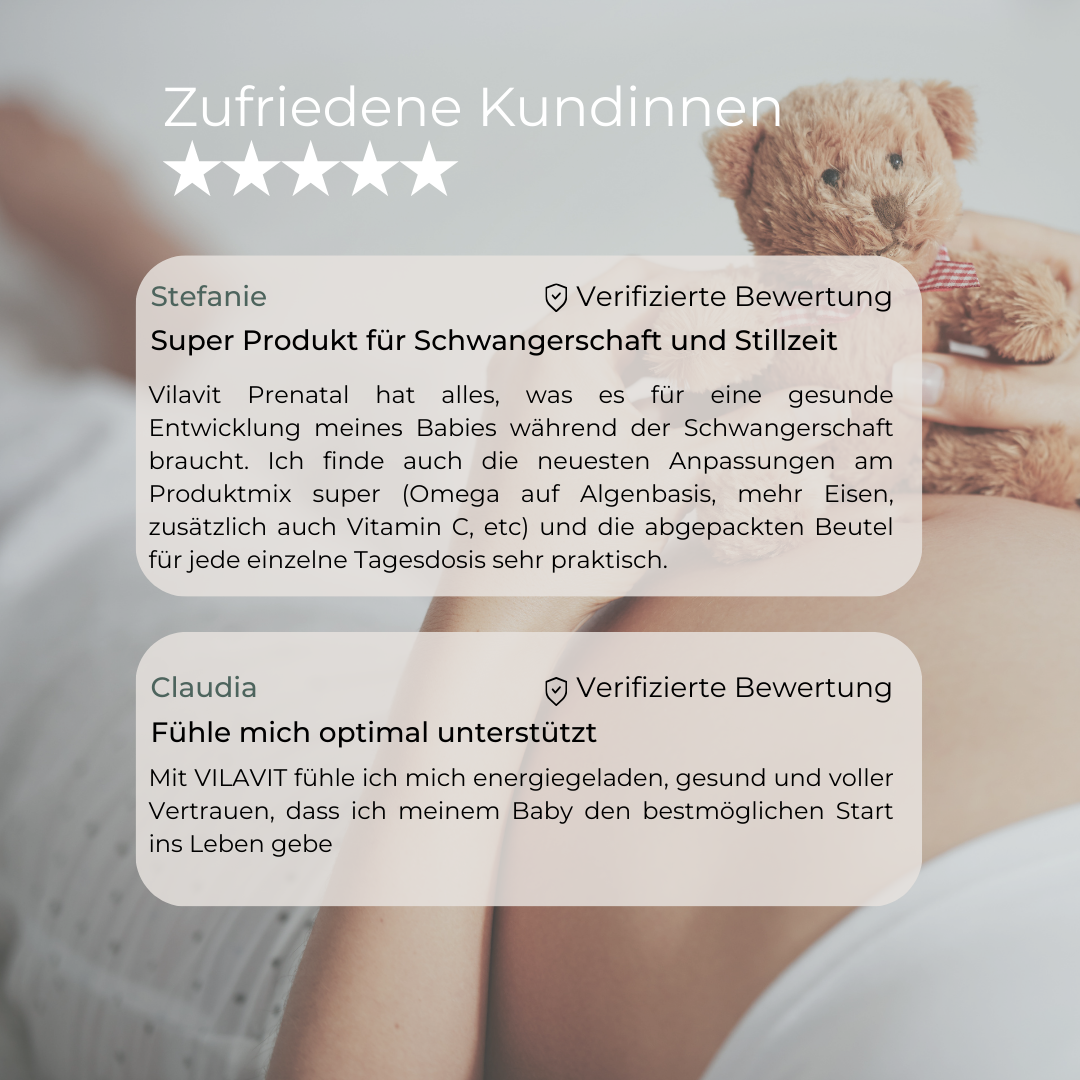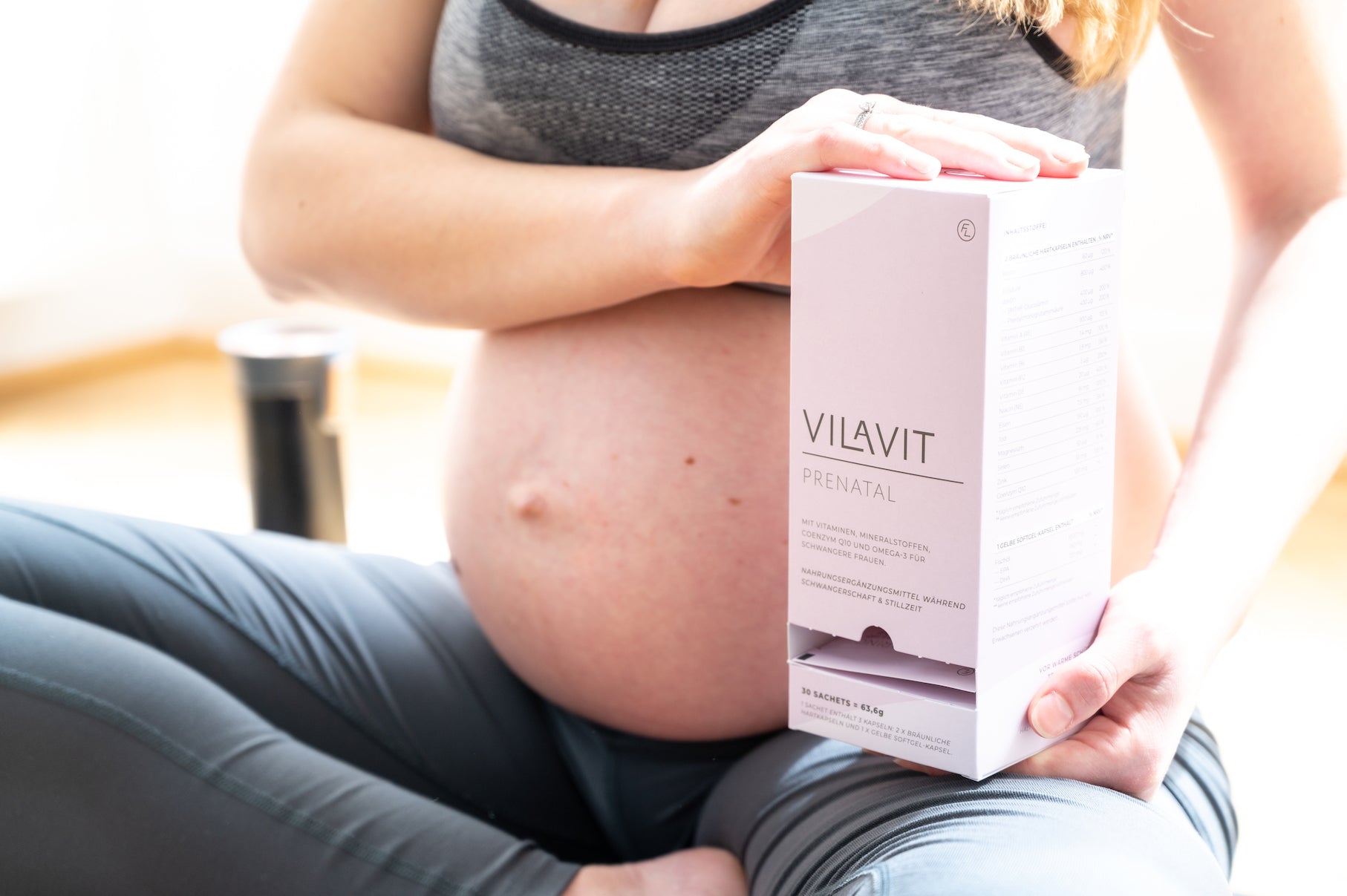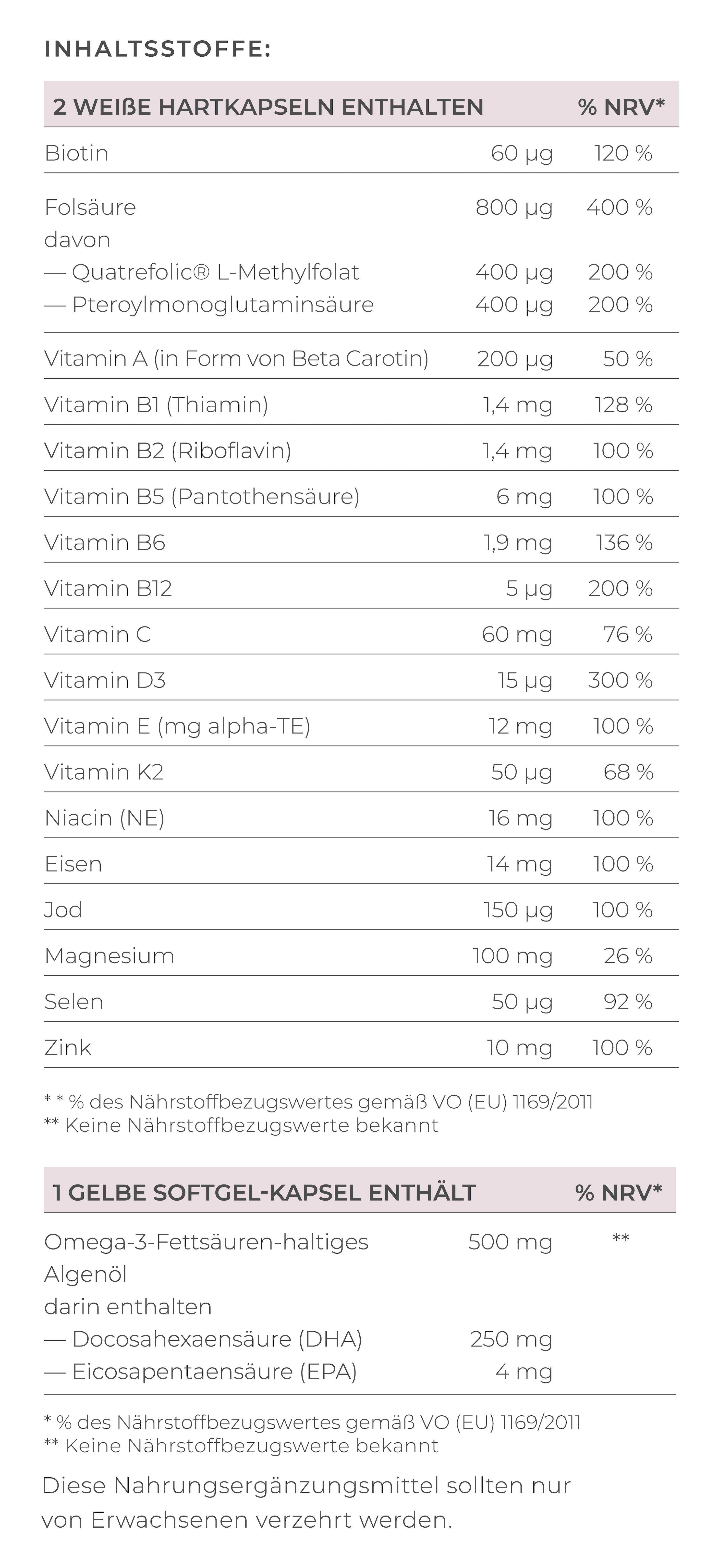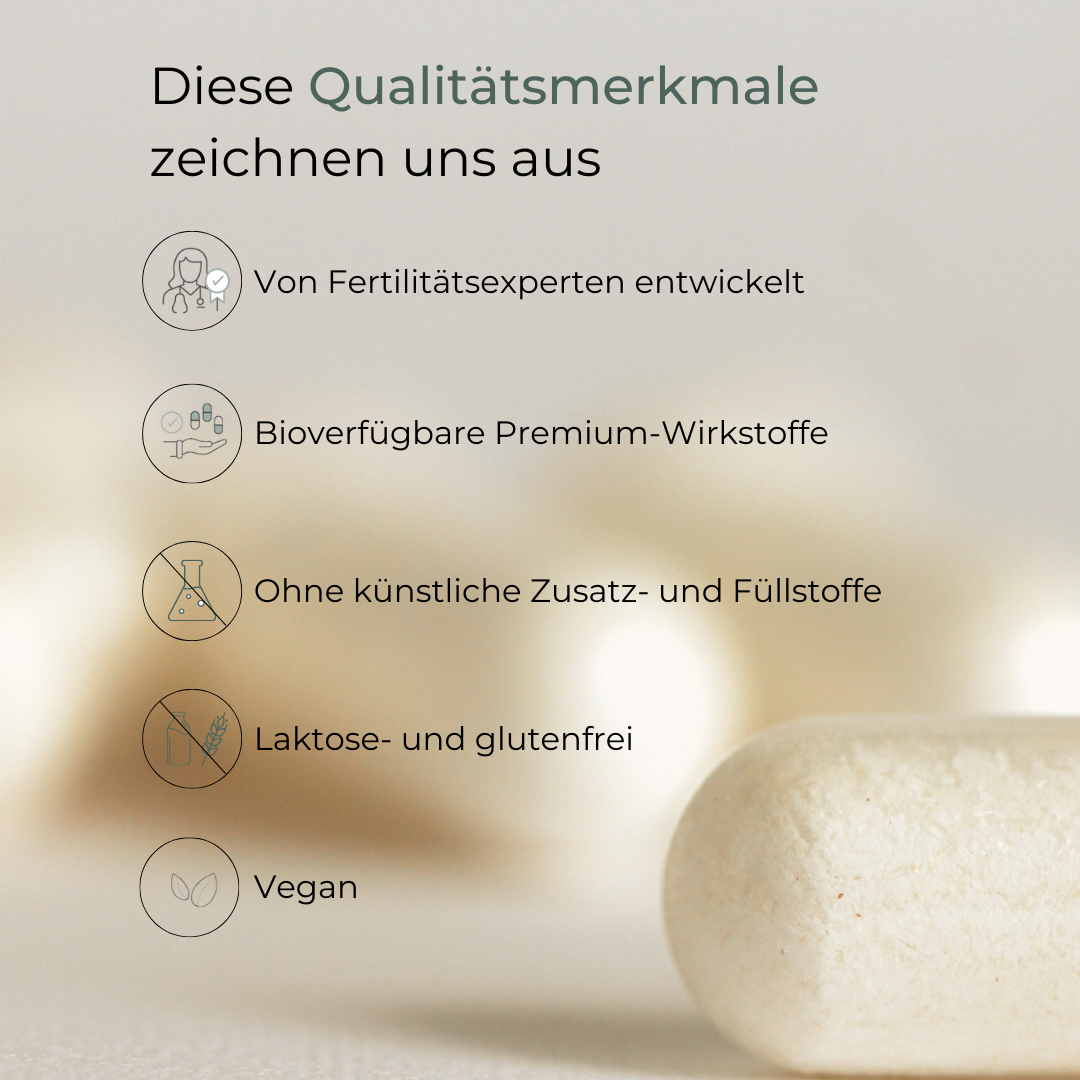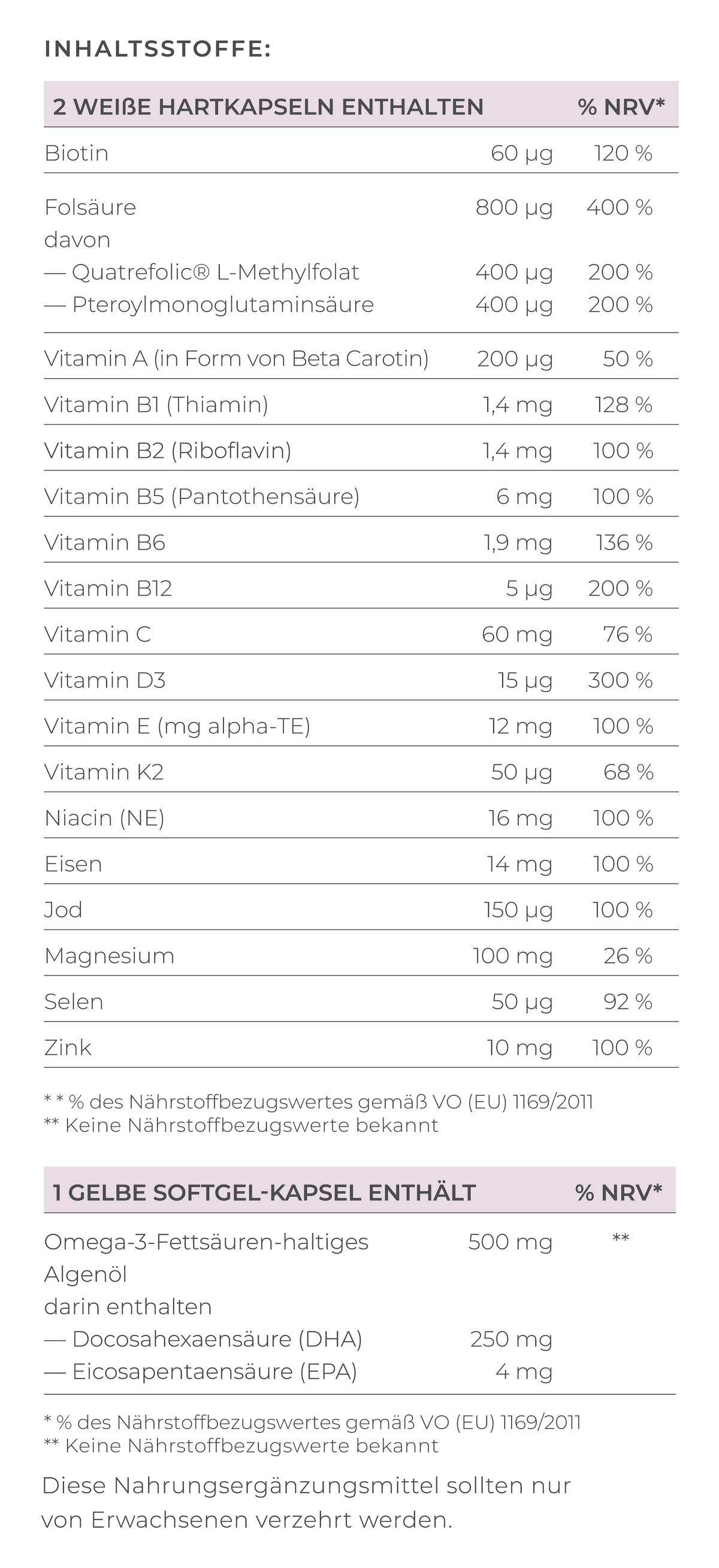
Waiting for certainty? Early signs of pregnancy
Do you know that feeling when your period is late and you wonder: Am I pregnant? From subtle signs like implantation bleeding or fatigue to changes in taste and smell - discover which symptoms can trigger an emotional rollercoaster as you wait for confirmation.

Increased Nutrient Requirements During Pregnancy
During pregnancy, your body requires additional nutrients to optimally support both your health and your baby's development. Especially important are folic acid (or folate), iron, calcium, omega-3 fatty acids, and vitamin D. These nutrients play a crucial role in cell formation and division, brain development, and the baby's bone growth.
Important nutrients during pregnancy
Supports the healthy development of the neural tube in the fetus; essential for the formation of the brain and spinal cord.
Supports the production of red blood cells; crucial for oxygen transport.
Promotes the development of the baby's brain and eyes. Has anti-inflammatory effects.
Important for the formation of red blood cells and the proper functioning of the nervous system.
Supports the growth and development of cells, including the eyes. Important for the mother's immune system.
Vitamin D promotes calcium absorption and is essential for the bone development of the unborn fetus.
Frequently asked questions
What are the consequences of vitamin deficiency during pregnancy?
A vitamin deficiency during pregnancy can have serious consequences for both mother and child. It increases the risk of birth defects, such as neural tube defects caused by folate deficiency, as well as premature birth and low birth weight. Additionally, a lack of essential vitamins can impair the baby's development, weaken the immune system, and negatively affect the mother's health, for example, causing anemia due to iron deficiency or bone weakness from vitamin D deficiency. Therefore, ensuring adequate vitamin intake during pregnancy is especially important.
Can too many dietary supplements during pregnancy cause harm?
Too many dietary supplements during pregnancy can be harmful, as excessive amounts of certain vitamins and minerals may increase the risk of complications. The dosage of prenatal vitamins should be determined together with your healthcare provider, taking into account your individual diet and needs.
What should I consider if I follow a vegan or vegetarian diet?
If you follow a vegan or vegetarian diet during pregnancy, it is especially important to pay close attention to your nutrient intake. Vitamin B12, iron, omega-3 fatty acids, vitamin D, and calcium may not be sufficiently available from plant-based sources alone. Be sure to inform your healthcare provider about your dietary choices so they can assess which supplements are necessary during your pregnancy, ensuring both you and your baby receive all essential nutrients.
Why do other manufacturers adjust the dosage according to the trimester?
Other manufacturers adjust their dosages according to the trimester, even though the nutrient requirements only change minimally. Doctors often view this as a pure marketing tactic. However, continuous supply of Omega-3 from the very beginning is crucial, yet many manufacturers do not adequately meet this requirement. The dosage of VILAVIT Prenatal has been specifically designed to ensure optimal nutrient supply throughout all trimesters.
Should I start taking prenatal vitamins after the egg retrieval or after the embryo transfer?
We recommend pausing the intake of the brown capsule containing ubiquinol from the time of embryo transfer until the pregnancy test is performed.
If the result is positive, it's best to transition to a prenatal supplement specifically designed for pregnancy, such as VILAVIT Prenatal. If the test is negative, we recommend continuing with a fertility supplement like VILAVIT Female to support your ongoing fertility journey.
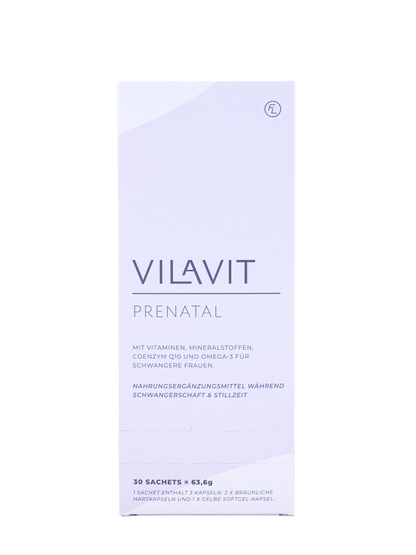
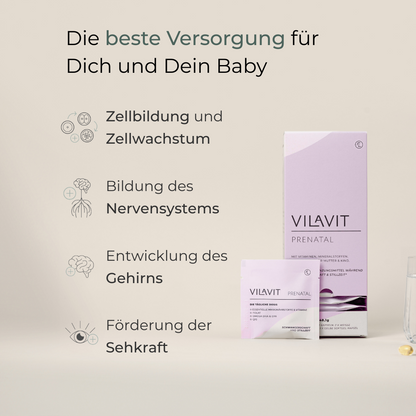
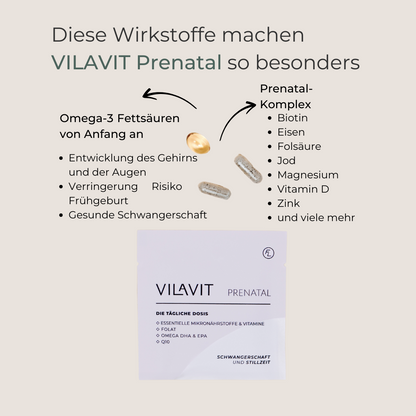


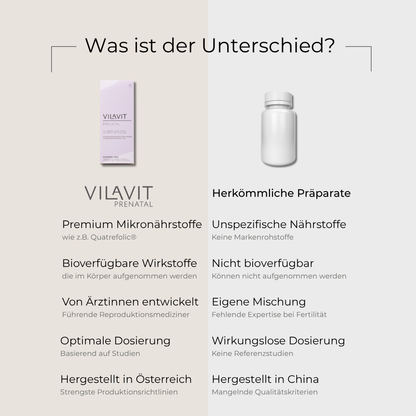
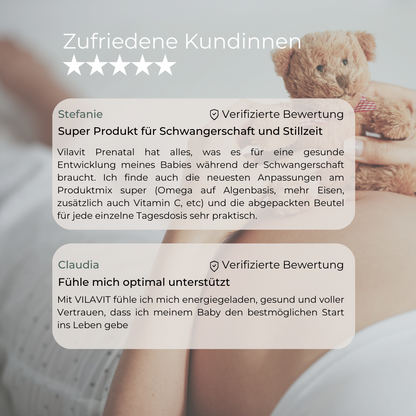
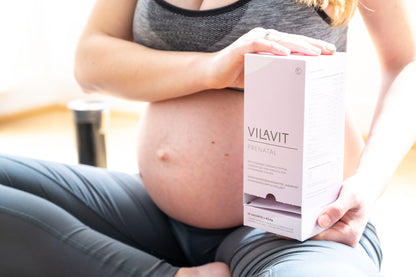
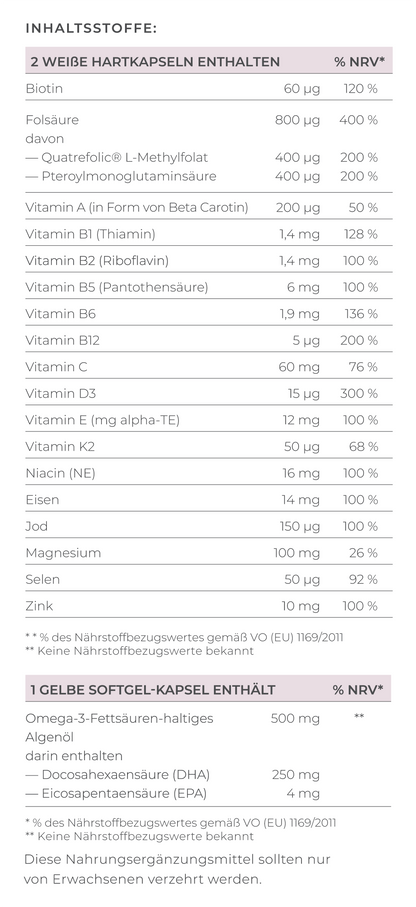
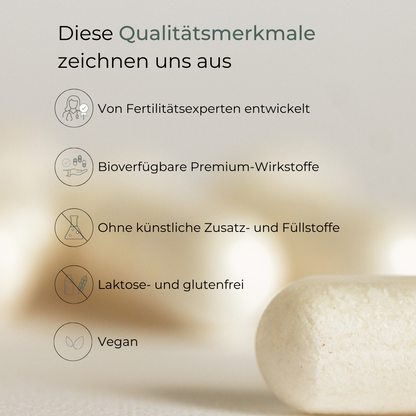
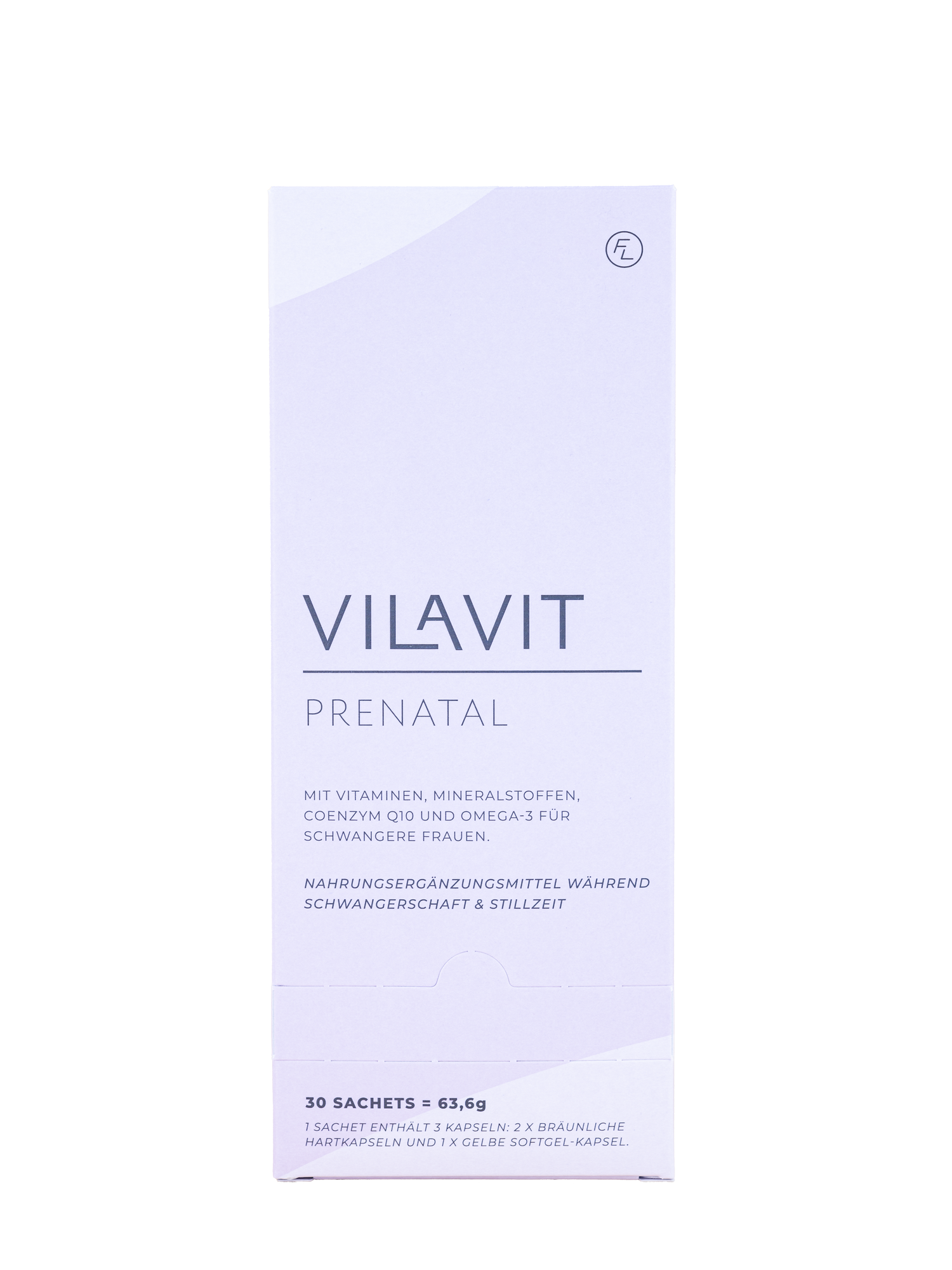
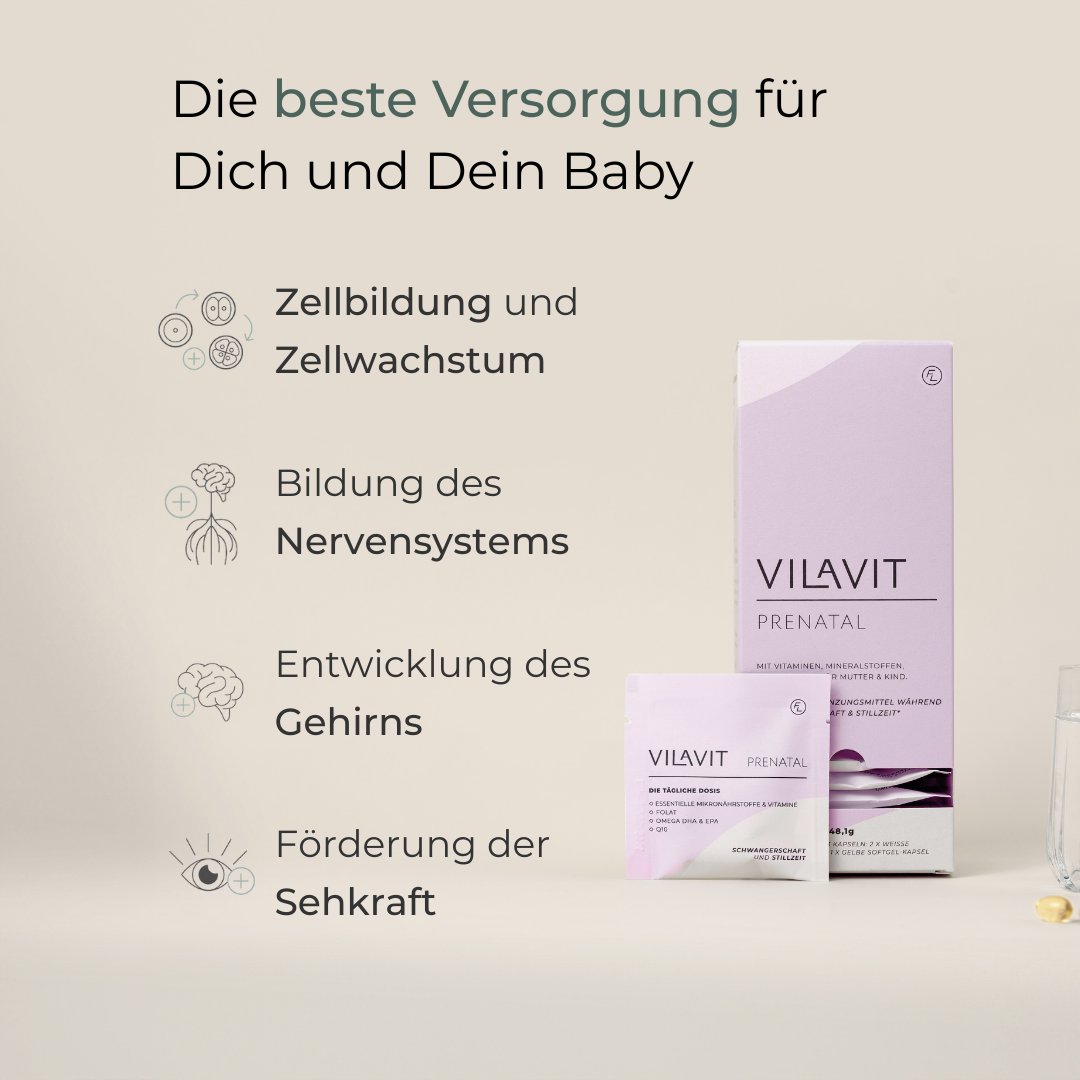
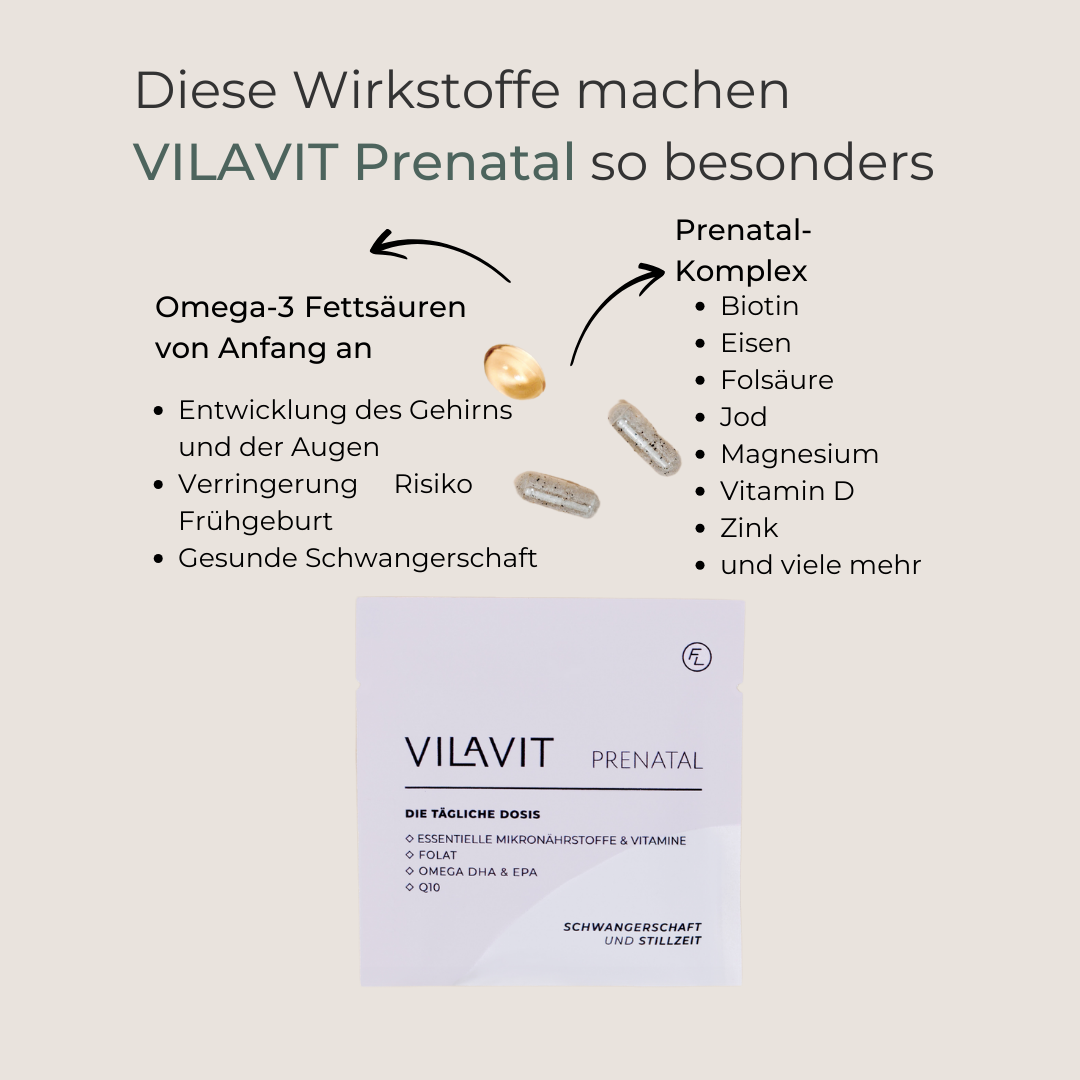








VILAVIT Prenatal
- Regular price
-
€59,00 - Regular price
-
- Sale price
-
€59,00
Anwendung
Es wird empfohlen, VILAVIT Prenatal kontinuierlich während der gesamten Schwangerschaft sowie der Stillzeit einzunehmen.
Verzehrempfehlung
- Verzehrempfehlung: 1 Sachet (enthält 3 Kapseln) täglich.
- Das Sachet öffnen und jede Kapsel einzeln mit reichlich Wasser schlucken.
- Für Kinder und Jugendliche nicht geeignet.
UNSER QUALITÄTSVERSPRECHEN
- Hergestellt nach höchsten Qualitäts- und Produktionsstandards
- Von externen Gutachtern geprüft
- In Österreich hergestellt
